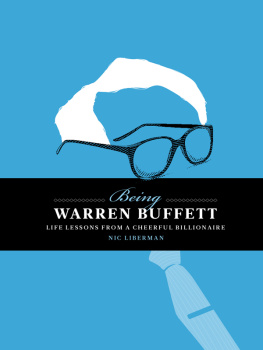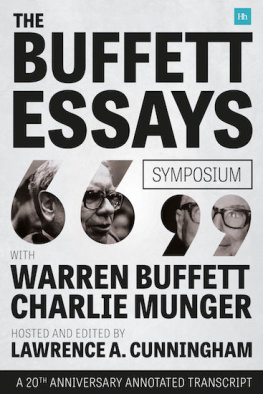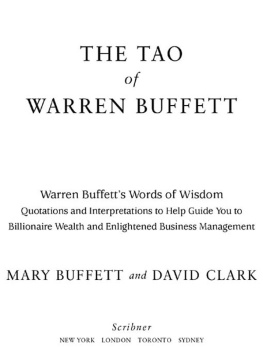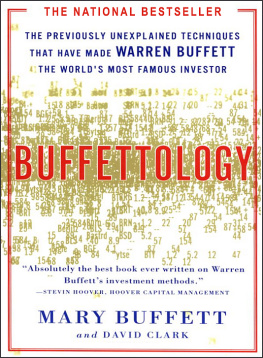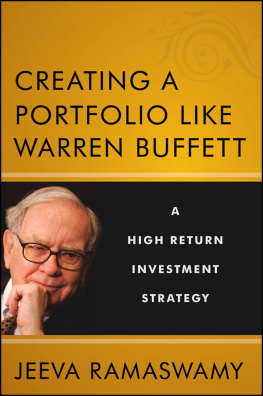Copyright 2015 by McGraw-Hill Education. All rights reserved. Except as permitted under the United States Copyright Act of 1976, no part of this publication may be reproduced or distributed in any form or by any means, or stored in a database or retrieval system, without the prior written permission of the publisher.
ISBN: 978-0-07-181933-6
MHID: 0-07-181933-9
The material in this eBook also appears in the print version of this title: ISBN: 978-0-07-181932-9, MHID: 0-07-181932-0.
eBook conversion by codeMantra
Version 1.0
All trademarks are trademarks of their respective owners. Rather than put a trademark symbol after every occurrence of a trademarked name, we use names in an editorial fashion only, and to the benefit of the trademark owner, with no intention of infringement of the trademark. Where such designations appear in this book, they have been printed with initial caps.
McGraw-Hill Education eBooks are available at special quantity discounts to use as premiums and sales promotions or for use in corporate training programs. To contact a representative, please visit the Contact Us page at www.mhprofessional.com.
TERMS OF USE
This is a copyrighted work and McGraw-Hill Education and its licensors reserve all rights in and to the work. Use of this work is subject to these terms. Except as permitted under the Copyright Act of 1976 and the right to store and retrieve one copy of the work, you may not decompile, disassemble, reverse engineer, reproduce, modify, create derivative works based upon, transmit, distribute, disseminate, sell, publish or sublicense the work or any part of it without McGraw-Hill Educations prior consent. You may use the work for your own noncommercial and personal use; any other use of the work is strictly prohibited. Your right to use the work may be terminated if you fail to comply with these terms.
THE WORK IS PROVIDED AS IS. McGRAW-HILL EDUCATION AND ITS LICENSORS MAKE NO GUARANTEES OR WARRANTIES AS TO THE ACCURACY, ADEQUACY OR COMPLETENESS OF OR RESULTS TO BE OBTAINED FROM USING THE WORK, INCLUDING ANY INFORMATION THAT CAN BE ACCESSED THROUGH THE WORK VIA HYPERLINK OR OTHERWISE, AND EXPRESSLY DISCLAIM ANY WARRANTY, EXPRESS OR IMPLIED, INCLUDING BUT NOT LIMITED TO IMPLIED WARRANTIES OF MERCHANTABILITY OR FITNESS FOR A PARTICULAR PURPOSE. McGraw-Hill Education and its licensors do not warrant or guarantee that the functions contained in the work will meet your requirements or that its operation will be uninterrupted or error free. Neither McGraw-Hill Education nor its licensors shall be liable to you or anyone else for any inaccuracy, error or omission, regardless of cause, in the work or for any damages resulting therefrom. McGraw-Hill Education has no responsibility for the content of any information accessed through the work. Under no circumstances shall McGraw-Hill Education and/or its licensors be liable for any indirect, incidental, special, punitive, consequential or similar damages that result from the use of or inability to use the work, even if any of them has been advised of the possibility of such damages. This limitation of liability shall apply to any claim or cause whatsoever whether such claim or cause arises in contract, tort or otherwise.
Contents
Preface
IS IT POSSIBLE TO ADD TO THE PORTRAIT OF BUFFETT, GIVEN ALL THE books that have been written about him? The purpose of my book is to assemble all the factors that have played a role in Buffetts success, including those that go beyond his investment principles, which are well known and rather traditional if described from the point of view of value investors, to which group Buffett undoubtedly belongs. The ideas of my book are also discussed in my earlier article, Why Is It That I Am Not Warren Buffett? [Chirkova, 2012].
My book has eleven chapters. Two of them () to the tactics that Buffett uses when acquiring companies, making portfolio investments, or positioning Berkshire as a white knight and the right home for the right people.
I begin by discussing Buffetts intellectual forebears, Ben Graham and Philip Fisher, whom Buffett regards as his teachers (). I dont share the view that Buffett adheres rigidly to their ideas, and I discuss where Buffetts principles differ from those of Graham and Fisher. Buffetts departure from some of Grahams ideas, which are considered to be controversial within the modern investor community, contributed positively to Buffetts success.
I also analyze Buffetts views on how the financial markets function and his position on key corporate finance issues (I find that Buffetts better conceptual foundation is the cornerstone of his successful strategy. I review other scholars analyses of the extent of Buffetts outperformance, as his investment success has recently become the subject of study by economists and financial theorists.
My book not only provides an analysis of Buffetts investment principles but also discusses how his different principles are logically interconnected; for instance, how Buffetts concept of risk, where he disagrees with its traditional interpretation as volatility, or his suspicions about investing in technology companies and his long-term investment horizon are linked to one another. I also compare Buffetts investment approach with the approaches used by Peter Lynch, a great investor who could be described as similar to Buffett in spirit, and by Robert Merton, a Nobel Prizewinning financial theorist who could be viewed as the antithesis of Buffett. These comparisons I make in help crystallize the understanding of Buffetts investment principles.
Buffetts results are often compared with the returns delivered by investment funds, but Berkshire Hathaway is not a fund but a joint stock company, and this is one of the critical factors behind his success. The structural organization of an investment business set up as a corporation is beneficial only in terms of a specific investment strategy in which a long-term investment horizon is a key component. I discuss this issue in detail. Also, Berkshires structural organization and Buffetts extensive, but intelligent, involvement in the insurance business allow the company to obtain practically cost-free leverage. is devoted to a detailed analysis of Berkshires use of leverage.
Last, but not least, Buffetts exceptional investment abilities cannot be overlooked, nor can the contribution from his alter ego, Charlie Munger. These are discussed in .
I am very grateful to all the authors and scholars who have written on the subject, for I have been inspired by the very valuable contributions made by others to the development of a deeper understanding of Buffetts investment practices. I would like to mention here some books that have proved to be priceless sources for my research (mentioning all of them would be prohibitively lengthy for a preface; nevertheless, the work of all these other scholars was absolutely indispensable to me, and I refer to them throughout my book).
James Altuchers book Trade Like Warren Buffett [Altucher, 2005] is close to my understanding of Buffetts investment strategy in spirit in that its author was the first, to the best of my knowledge, to have observed that Warren Buffetts investment principles are far more complicated than they seem at first sight and than they are described in most books on Buffetts investment success. Andrew Kilpatricks excellent volume (currently two volumes) Of Permanent Value: The Story of Warren Buffett [Kilpatrick, 2005] is a unique collection of facts and stories about Warren Buffett and his deals and investments, many of which are not available in other sources. Alice Schroeder, who wrote



